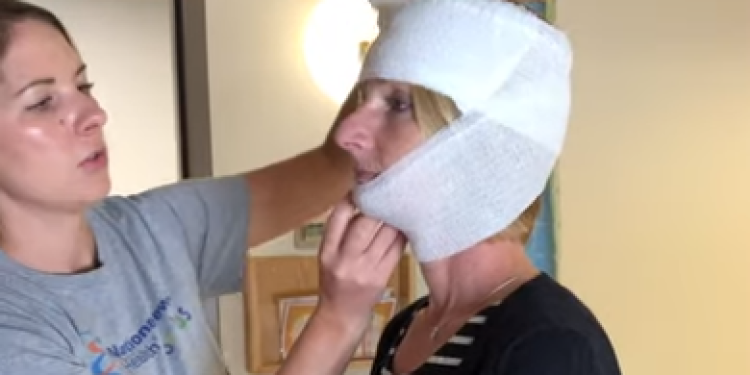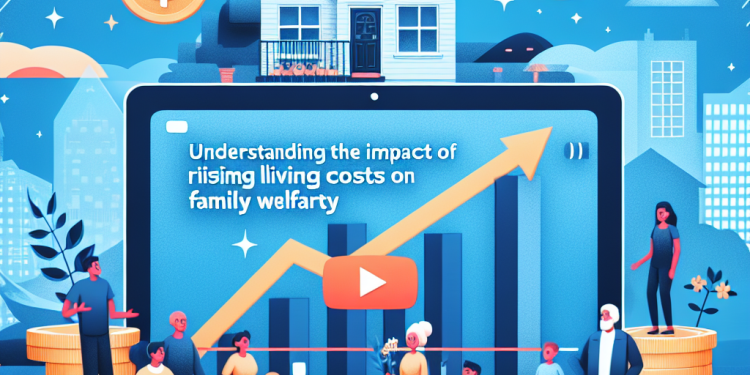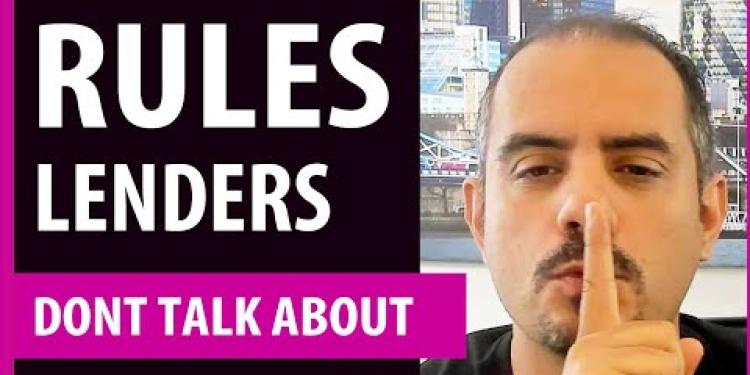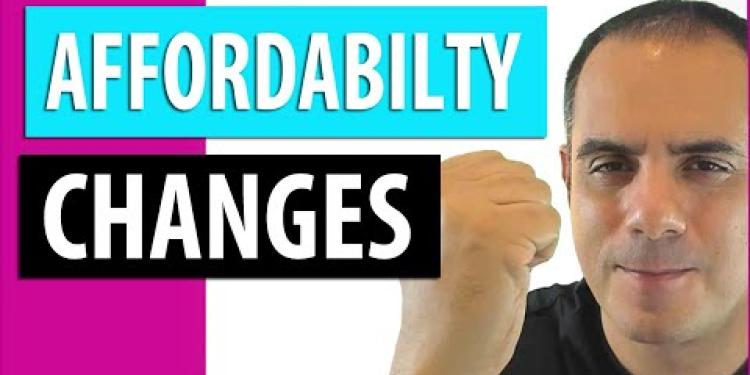Important Information On Using This Service
- Ergsy carefully checks the information in the videos we provide here.
- Videos shown by YouTube after a video has completed have NOT been reviewed by ERGSY.
- To view, click the arrow in the center of the video.
Using Subtitles and Closed Captions
- Most of the videos you find here will have subtitles and/or closed captions available.
- You may need to turn these on and choose your preferred language.
Turn Captions On or Off
- Go to the video you'd like to watch.
- If closed captions (CC) are available, settings will be visible on the bottom right of the video player.
- To turn on captions, click settings.
- To turn off captions, click settings again.
Find A Professional
Management and Treatment of eczema in Children:
Managing eczema in children involves a comprehensive approach. Regular moisturizing is crucial to keep the skin hydrated and to reduce the risk of flare-ups. Parents and caregivers should choose fragrance-free, hypoallergenic moisturizers and apply them liberally, particularly after baths. Avoiding harsh soaps and detergents is essential to prevent skin irritation.
In cases of acute flare-ups, topical corticosteroids or other prescribed anti-inflammatory creams are often recommended. It's essential to use these medications under the guidance of a pediatrician or dermatologist and to monitor for any potential side effects. For severe cases that do not respond to topical treatments, oral medications or immunosuppressants may be considered, but these are typically reserved for specific situations and administered under close medical supervision.
Impact on Daily Life for younger eczema sufferers:
Eczema in children can significantly impact their daily lives. The incessant itching can disrupt sleep, leading to irritability and fatigue. It may also interfere with daily activities, such as school, play, and social interactions. The visible nature of eczema can sometimes affect a child's self-esteem, especially as they become more aware of their appearance.
Preventive Measures to stop outbreaks of eczema:
Preventing eczema flare-ups involves creating a skin-friendly environment for children. This includes maintaining a consistent bathing routine using mild, fragrance-free cleansers, dressing them in soft, breathable fabrics, and ensuring a comfortable sleeping environment. Identifying and avoiding specific triggers, whether related to diet or environmental factors, can significantly contribute to preventing recurrent eczema episodes.
Emotional Support:
Beyond the physical symptoms, eczema can have emotional implications for children. Itching and discomfort may affect their emotional well-being, leading to frustration and stress. Parents and caregivers play a crucial role in providing emotional support, educating their children about the condition, and fostering self-care habits to manage eczema effectively.
Factors That Trigger Eczema in Your Child
Environmental Factors
The environment can play a significant role in triggering eczema flare-ups in children. Common factors include extreme temperatures, high humidity, and pollution levels, which may be prevalent in certain areas of the United Kingdom. Cold weather can cause skin dryness, while hot weather can increase sweat, both leading to eczema exacerbations. Household dust mites, pet dander, and pollen can also be common allergens that trigger your child’s eczema.Food Allergies
Food allergies are another prevalent trigger for eczema. In children, common allergens include cow's milk, eggs, peanuts, soy, and wheat. If you suspect a food allergy is causing your child’s eczema, it is essential to consult a healthcare professional for proper diagnosis and management. The National Health Service (NHS) can provide guidelines on managing food allergies effectively in children in the UK.Clothing and Fabrics
The type of clothing and materials that your child wears can impact their eczema. Rough fabrics like wool and synthetic fibers may irritate the sensitive skin of young children. Opt for soft, breathable fabrics such as cotton. Additionally, laundering clothes with fragrant detergents can leave residues that may irritate the skin, so using fragrance-free and hypoallergenic detergents is recommended.Stress and Emotional Factors
Stress and emotional well-being can impact eczema in children. Emotional stress stemming from school, social situations, or family life can exacerbate eczema symptoms. Teaching your child stress management techniques and ensuring they have a supportive environment at home can help mitigate eczema flare-ups.Skin Irritants
Identifying and avoiding skin irritants is crucial in managing eczema. Common irritants include soaps, bubble baths, and shampoos that contain harsh chemicals. In the UK, there are numerous child-friendly and eczema-safe bath products available. Parents should look for products specifically designed for sensitive skin and free of irritants such as perfume and alcohol.Infections
Bacterial, viral, and fungal infections can also worsen or trigger eczema. Children with eczema are more prone to skin infections due to a compromised skin barrier. It is essential to maintain proper skin hygiene and consult medical professionals if infections are suspected.Management and Treatment of Eczema in Children:
Taking care of eczema in children needs careful planning. It is important to use lotion every day to keep the skin soft and stop eczema from getting worse. Parents should use lotions that have no added smells and are safe for sensitive skin. Put on lots of lotion, especially after baths. Do not use soaps or washing liquids that are too strong because they can hurt the skin.
When eczema gets bad, doctors might give creams to help. These include special creams called corticosteroids. Always talk to a doctor when using these creams, and look out for any side effects. If creams do not work, doctors might use medicine you swallow. This is only for really bad eczema and a doctor must watch closely.
Impact on Daily Life for Younger Eczema Sufferers:
Eczema can make daily life hard for children. The itching can make it hard to sleep, which can make kids cranky and tired. It can also make it hard to concentrate at school or play with friends. Sometimes, having eczema can make kids feel bad about how they look.
Preventive Measures to Stop Outbreaks of Eczema:
Stopping eczema from getting worse means making sure kids have a safe place for their skin. Keep a regular bath routine with gentle, fragrance-free soaps, dress them in soft clothes, and make sure they have a comfy place to sleep. Finding what things bother their skin or diet can help stop eczema from coming back.
Emotional Support:
Eczema does not only affect the skin. It can also affect how kids feel. The itching can be stressful and make them upset. Parents can help by talking to kids about eczema and teaching them how to take care of their skin. Support from family can help children feel better and more in control.
```What Can Make Your Child's Eczema Worse
Things in the Environment
The world around us can make eczema worse. Things like very hot or cold weather and dirty air can cause problems. When it's cold, skin gets dry. When it's hot, your child might sweat more. Both can make eczema worse. Dust in the house, pet hair, and pollen from flowers can also be problems.Food Allergies
Some foods can make eczema worse. These might be milk, eggs, peanuts, soy, and wheat. If you think a food is making your child's eczema worse, talk to a doctor. The doctor can help you find out for sure and tell you what to do next.Clothing and Fabrics
What your child wears can affect eczema. Rough clothes like wool can hurt the skin. Choose soft clothes like cotton instead. Also, wash clothes with simple soap that doesn't smell. This can help keep your child's skin calm.Stress and Feelings
Feeling upset or worried can make eczema worse. Things like school stress or trouble at home can cause problems. Teach your child how to relax and make sure they feel happy and safe at home.Things That Irritate Skin
Some shampoos and soaps can hurt the skin. Choose products made for sensitive skin. They should not have strong smells or harsh ingredients.Infections
Infections from germs can make eczema worse. Children with eczema can get infections more easily. Keep your child's skin clean and see a doctor if you think there is an infection. ```Frequently Asked Questions
What is eczema?
Eczema, also known as atopic dermatitis, is a chronic skin condition that causes the skin to become itchy, red, dry, and cracked. It's particularly common in children.
Can food allergies trigger eczema in children?
Yes, certain food allergies, such as to cow's milk, eggs, peanuts, and soy, can trigger or worsen eczema symptoms in children.
How can weather affect my child's eczema?
Cold, dry weather can dry out your child's skin, and hot, humid weather can make them sweat, both of which can aggravate eczema.
Are there environmental factors that can trigger eczema?
Common environmental triggers include dust mites, pet dander, pollen, and mold. These allergens can exacerbate eczema symptoms.
Can stress cause eczema flare-ups in children?
Yes, stress can be a significant trigger for eczema flare-ups. Emotional stress can cause the body to produce hormones that exacerbate skin inflammation.
How important is moisturizing for managing eczema?
Regular moisturizing is crucial for managing eczema. It helps to maintain the skin's barrier and prevent dryness, which can trigger flare-ups.
Can fabrics and clothing affect eczema?
Yes, certain fabrics, especially wool and synthetic materials, can irritate the skin and trigger eczema. Opt for soft, breathable fabrics like cotton.
Are there specific soaps or detergents that can trigger eczema?
Harsh soaps and detergents, particularly those with strong fragrances, can irritate the skin and trigger eczema. Use gentle, fragrance-free products.
What role does bathing play in managing eczema?
Daily baths in lukewarm water can help manage eczema. However, it's essential to avoid hot water and harsh soaps. Moisturize immediately after bathing.
Can infections worsen eczema symptoms?
Yes, bacterial, viral, and fungal infections can worsen eczema symptoms and make the skin more prone to flare-ups.
Does family history impact the likelihood of eczema in children?
Yes, children are more likely to develop eczema if there's a family history of eczema, asthma, or hay fever.
Can hormonal changes trigger eczema?
Hormonal changes, such as those during puberty, can trigger or worsen eczema in some children.
Is it possible for hard water to affect eczema?
Yes, hard water, which is common in many parts of the UK, can exacerbate eczema by drying out the skin.
Can air pollution trigger eczema in children?
Exposure to air pollution can trigger or worsen eczema symptoms in children. Pollutants can irritate the skin and contribute to inflammation.
Are there any preventative measures to reduce eczema flare-ups?
Preventative measures include regular moisturizing, avoiding known triggers, using gentle skincare products, maintaining a balanced diet, and reducing stress.
What is eczema?
Eczema is when your skin gets itchy, red, and dry. It can feel uncomfortable. Sometimes, you might see little bumps on your skin. Eczema is not catching, so you can't get it from someone else.
Here are some ways to help if you have eczema:
- Keep your skin moisturized: Use lotions or creams to keep your skin soft.
- Avoid scratching: Try not to scratch your skin, even if it's itchy.
- Take warm baths: Use gentle soap and take short, warm baths or showers.
- Wear soft clothes: Choose clothes made of soft materials, like cotton.
- Ask for help: Talk to a doctor if your skin hurts a lot.
Eczema is a skin problem. It is also called atopic dermatitis. It makes your skin itchy, red, dry, and cracked. Many kids have it.
Can Eating Certain Foods Make Children's Skin Itchy?
Yes, some foods can make eczema worse in kids. These foods are cow's milk, eggs, peanuts, and soy.
How does weather change my child's eczema?
When it is cold and dry outside, your child's skin can become dry. When it is hot and humid, they can sweat a lot. Both of these can make eczema worse.
Can things around us make eczema start?
Things like tiny bugs in dust, animal hair, plant pollen, and mold can make eczema worse.
Does stress make eczema worse in children?
Yes, feeling stressed can make eczema worse. When you feel stressed, your body makes special chemicals that can make your skin itchy and red.
Why is moisturizer important for eczema?
Eczema makes your skin red and itchy. Moisturizer can help make your skin feel better. It helps keep your skin soft and stops it from getting too dry.
Try using a moisturizer every day. This can help your skin heal and feel less itchy.
Some tools that might help you remember to use moisturizer are setting a reminder on your phone or putting the moisturizer next to your toothbrush.
It is very important to use lotion or cream on your skin every day if you have eczema. This helps keep your skin strong and stops it from getting dry. Dry skin can make eczema worse.
Do clothes and fabrics change eczema?
Yes, some clothes can make your skin itchy. Wool and some man-made materials can make eczema worse. It's best to wear soft and airy clothes like cotton.
Can some soaps or cleaning products cause eczema?
Some soaps and cleaning products can hurt your skin. This can make eczema worse. Try to use gentle products that do not have strong smells.
How does taking a bath help with eczema?
Take a bath every day in warm water. This can help with eczema. Do not use hot water or harsh soaps. Put on lotion right after your bath.
Can having germs make eczema worse?
Yes, germs like bacteria, viruses, and fungi can make eczema worse. They can cause more flare-ups, which are times when the skin gets red, itchy, and sore.
Can family history make a child more likely to get eczema?
Yes, kids are more likely to get itchy skin (eczema) if someone in their family has had itchy skin, breathing problems (asthma), or allergies (hay fever) before.
Can changes in hormones cause eczema?
When kids go through changes in their body, like puberty, it can make their skin problems, like eczema, start or get worse.
Can hard water make eczema worse?
Yes, hard water can make eczema worse. This is because hard water is found in many places in the UK, and it can make your skin very dry.
Can bad air make kids' skin itchy?
Breathing dirty air can make eczema worse in kids. Bad air can bother the skin and make it red and sore.
What can I do to stop eczema from getting worse?
To keep your skin healthy, you can do a few simple things:
- Use lotion on your skin every day.
- Try to stay away from things that make your skin feel bad.
- Use skincare products that are gentle and kind to your skin.
- Eat a mix of different foods to stay healthy.
- Find ways to stay calm and not feel too stressed.
These steps can help keep your skin feeling good.
Useful Links
Useful links from: What is eczema? General Information
- NHS - Overview of Eczema Provides a comprehensive overview of atopic eczema, including symptoms, causes, diagnosis, treatment, and living with the condition.
- National Eczema Society (UK) The National Eczema Society is a UK charity dedicated to improving the quality of life for people with eczema and their families, providing support, information, and raising awareness.
- Eczema Outreach Support (EOS) Eczema Outreach Support provides practical and emotional support for families of children with eczema in the UK, offering tailored resources and community connections.
- Allergy UK - Eczema Allergy UK offers detailed information about eczema, including triggers, management strategies, and additional support resources for people living with eczema.
Useful links from: Managing and treating your child's eczema
- NHS - Eczema (Atopic Dermatitis) in Children Comprehensive guide by the NHS on understanding, managing, and treating eczema in children. Includes symptoms, causes, diagnosis, and treatment options.
- Eczema Outreach Support (EOS) A UK-based charity supporting families dealing with eczema. Provides resources, emotional support, and practical advice on managing childhood eczema.
- National Eczema Society The National Eczema Society offers expert information on treating and managing eczema in children. Includes advice on treatments, skincare routines, and accessing support services.
- Great Ormond Street Hospital - Eczema Parent Information Information from Great Ormond Street Hospital on eczema, including treatment options, how to manage flare-ups, and support for families. Provides detailed guides and patient stories.
Useful links from: How to apply wet wraps
- NHS - How to Apply Wet Wraps The NHS provides a comprehensive guide on treating atopic eczema, including how to apply wet wraps for children and adults. This resource outlines step-by-step instructions and includes information on managing eczema effectively.
- National Eczema Society - Wet Wraps The National Eczema Society offers detailed advice on using dressings and bandages, including wet wrapping techniques, which are important for managing severe eczema. This UK-based charity provides practical support and information for people with eczema.
- Allergy UK - Eczema Management Allergy UK provides information on managing eczema, including the use of wet wraps as part of an overall treatment plan. As a leading UK charity for people with allergies, they offer resources and support for those dealing with eczema.
Useful links from: Eczema - Your child's appointment | Dermatology | Paediatrics
- NHS - Eczema (Atopic Dermatitis) in Children Detailed information from the NHS on symptoms, causes, treatment, and prevention of atopic eczema, especially in children.
- National Eczema Society - Eczema in Children Advice and resources from the National Eczema Society, a UK charity, specifically focused on helping parents manage eczema in children.
- NHS - Dermatology Appointments for Children Guidance from the NHS on what to expect during dermatology appointments for children, including how to prepare and what treatments may be discussed.
- Eczema Outreach Support - Helping Families Support and resources from a UK charity dedicated to helping families with children who have eczema, including practical advice and community support.
Useful links from: How to apply wet wrap bandaging to the head and face area.
- NHS: Wet wrap therapy The NHS page on atopic eczema includes a section on wet wrap therapy that provides guidance on how to properly apply wet wraps, including the head and face area.
- National Eczema Society: Wet Wraps The National Eczema Society offers detailed information and advice on how to use wet wraps and other treatments for eczema, with specific instructions and precautions.
- Changing Faces UK: Skin Camouflage Changing Faces is a UK-based charity that provides support for people with visible differences. The site includes resources on skin camouflage, which can be useful for covering areas affected by wet wrap bandaging.
- Eczema Outreach Support: Resources Eczema Outreach Support offers various resources for families dealing with eczema, including practical guides and tips for treatments such as wet wrap therapy.
More Videos of Interestdiagnosis
This video also appears in these sectionsdiagnosis
Have you found an error, or do you have a link or some information you would like to share? Please let us know using the form below.
- Ergsy carfully checks the information in the videos we provide here.
- Videos shown by Youtube after a video has completed, have NOT been reviewed by ERGSY.
- To view, click the arrow in centre of video.
- Most of the videos you find here will have subtitles and/or closed captions available.
- You may need to turn these on, and choose your preferred language.
- Go to the video you'd like to watch.
- If closed captions (CC) are available, settings will be visible on the bottom right of the video player.
- To turn on Captions, click settings .
- To turn off Captions, click settings again.























































































